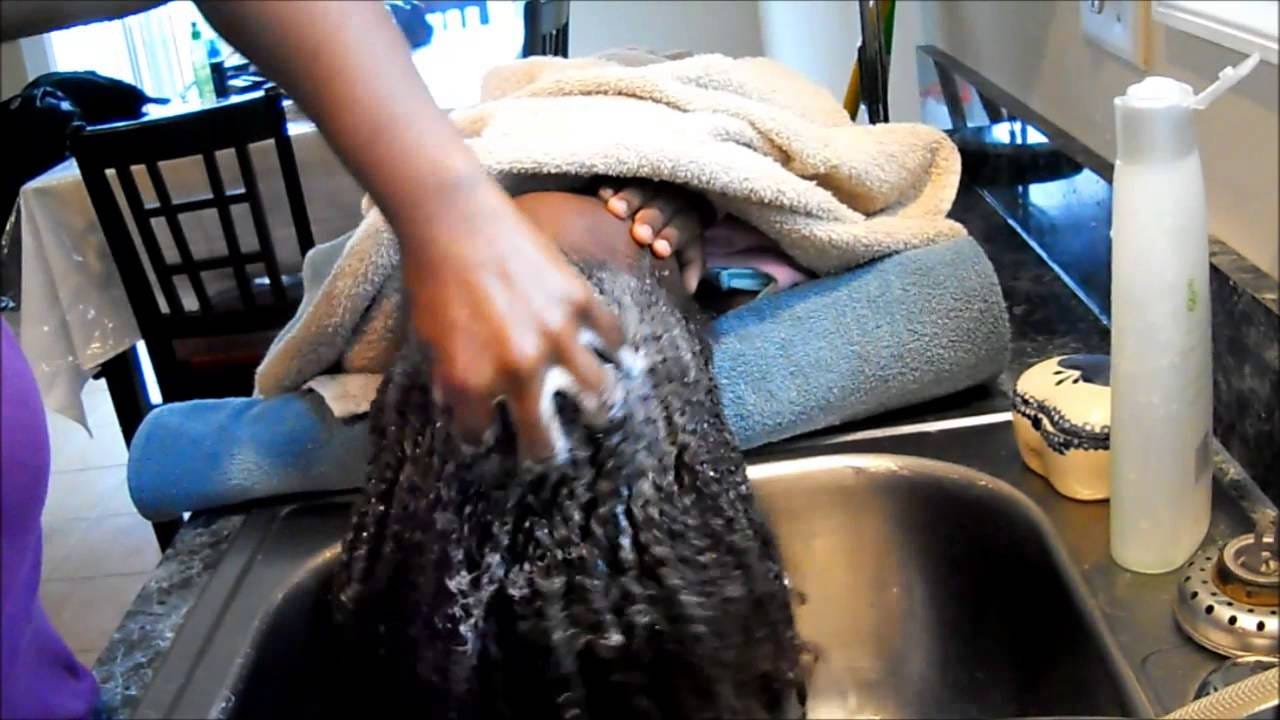Hair
The drama of being a Black woman and minding my hair
Some of my earliest memories involve me being upside down, head pressed against the cold metal of the sink below me, and the sudsy water streaming down my face. I may as well have been getting waterboarded. It was impossible for my mother to soothe me. Especially since what followed was further torture. I hated the sensation of getting my hair washed the most. However, the loud blowdryer raking through my tight coils and neck pops from snapping hair bobbles were close runner-ups. The worst was the eve of Easter, a pain every young Black girl knows far too well. “Hold your ear” and “Don’t move” were commonly repeated as mom slowly moved a hot comb(heated on a gas stove) to meticulously straighten the edges of my hair.
My autism made it so that styling my hair was a sensory nightmare. My Black girlhood made it so that having back-length perfectly styled hair was the standard that I should aspire to.
Black American beauty standards are quite simple. Light skin triumphs over almost everything else. Loose “wavy” long hair is a close second. I’m not considered “light skin” by most Black American standards however my skin was never dark enough to warrant teasing or mistreatment by others.
My hair, however, was a huge point of contention. Due to the sensory overload, I avoided getting it styled as much as I could. This was a problem.
Hair is incredibly political for Black women and it's been that way for quite a long while. Box braids traditionally stood as a sign of wealth as they took eight hours to style. Funny enough, box braids still tend to take six hours to style! There was also the Tignon law in 18th century Louisana. Apparently, a group of White women was threatened by Black women styling their hair in extravagant fashions that they urged the governor to pass a law requiring Black women to wear chignons in public. Go figure.
The most prevalent example of politicized Black hair would be…wearing our hair in its natural state. Although California was the first state to ban discrimination against Black women for wearing their natural hair, in most of America a Black woman can be legally fired for styling her hair in its natural state. Yes, it’s ridiculous. While there is a natural hair movement going on at the moment, Black women’s natural hair is still regularly scrutinized. Largely within the Black community itself. Natural hairstyles are associated with leftist political activism by mainstream White culture however within the Black community it is also associated with a new educated class, moral superiority, and social consciousness.
Straightened hair is often pushed as the beauty ideal within Black America it’s also being rejected as a form of self-hatred and traditionalism. Who would know hair would be so complicated.
The hair breakdown goes a bit like this:
Braids/Afros/Natural Curly Hairstyles - Typically college-educated, progressive, and middle class. Natural hair was originally associated with the pro-Black movement of the 1970s, it involved much more than a class signifier. Within the Black community, these women are assumed to be socially liberal and most likely, nouveau riche.
Relaxed/Straightened Hair without extensions or natural-looking extensions - Think Candace Owens. This is a mixed bag but more often than not people who wear their hair like this tend to be on the traditional, church leaning side. Probably middle class as well. While socially conscious Black people insist on the dangers that relaxers have, many people in this group have no problem with relaxing the hair of young children to chemically alter it straightened.
Long extensions/Weave/Blonde/Any alternative color - This is widely associated with Black working-class or just young people having fun. Black and White people alike tend to judge people within this group and view them as crass. Although this hair type usually costs the most out of the three.
As a Black woman with autism, I cannot wash my hair. This is embarrassing for me to admit however the sensory overload is far too much for me to do so properly. Therefore I eagerly go to the salon every few weeks to have it looked after. I pick extensions, not for any political reason but because the upkeep is far easier than the other options available to me. Although I wish I knew how to cornrow, twist, crimp, and style I can barely comb my own hair out without tangling. I cannot ever reach the pinnacle of Black beauty because my skin is not lighter than a paper bag. It is what it is. So all I have is my hair. And as long it's clean, I don’t pay much mind to it. It’s easy to feel like I’m failing at being a Black woman.



